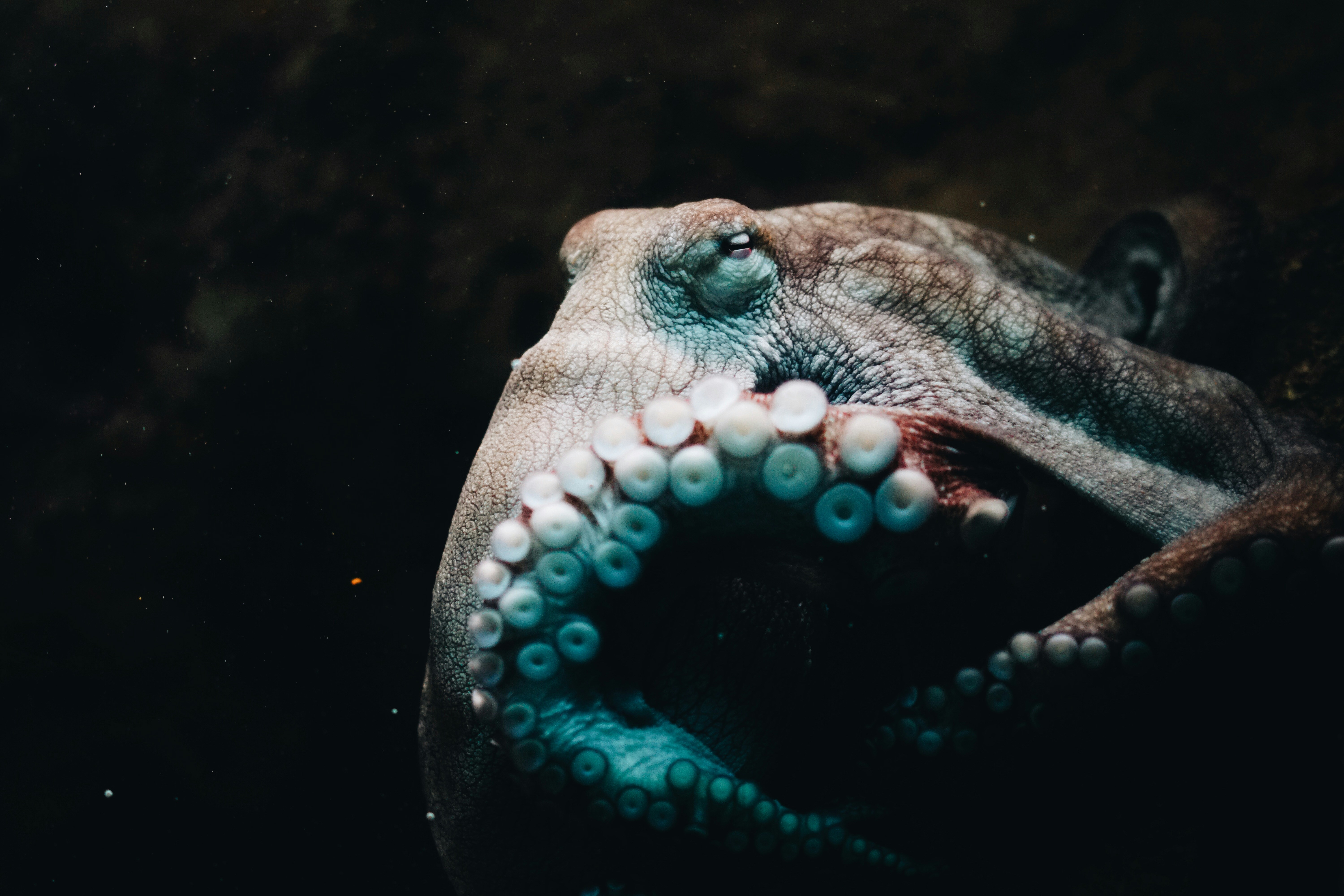Aquatic Acrobats: The Surprising Intelligence of Octopuses
In the depths of our oceans, a remarkable creature has been captivating scientists and marine enthusiasts alike. The octopus, with its eight arms and otherworldly appearance, is revealing itself to be far more than just another sea dweller. These cephalopods are emerging as one of the most intelligent invertebrates on the planet, showcasing problem-solving skills, adaptive behaviors, and even personality traits that challenge our understanding of animal cognition.
The Octopus Brain: A Cognitive Powerhouse
At the heart of the octopus’s impressive abilities lies its unique nervous system. Unlike most animals, octopuses have a decentralized nervous system, with the majority of their neurons distributed throughout their arms. This arrangement allows for incredible dexterity and independent control of each limb. The central brain, located between the eyes, coordinates these distributed networks, enabling complex decision-making and problem-solving.
Research has shown that octopuses possess both short-term and long-term memory, allowing them to learn from past experiences and apply that knowledge to new situations. This cognitive flexibility is crucial for their survival in the ever-changing marine environment.
Masters of Disguise: Adaptive Camouflage
One of the most astonishing abilities of octopuses is their mastery of camouflage. These cephalopods can change their skin color, pattern, and texture in a matter of milliseconds, blending seamlessly with their surroundings. This skill goes beyond mere instinct; octopuses have been observed assessing their environment and selecting the most appropriate camouflage strategy.
Their camouflage abilities are not limited to visual mimicry. Some species can also alter their body shape to mimic other marine creatures, such as lionfish or sea snakes, as a defense mechanism. This level of adaptability requires a sophisticated understanding of their environment and potential predators.
Problem-Solving Prodigies
Octopuses have repeatedly demonstrated their problem-solving prowess in laboratory settings. They can navigate mazes, unscrew jar lids to access food, and even use tools – behaviors once thought to be exclusive to vertebrates. In one famous experiment, an octopus was observed using coconut shells as portable shelter, demonstrating tool use and foresight.
These cognitive abilities extend to social learning as well. Despite being largely solitary creatures, octopuses have shown the capacity to learn by observing others of their species, a trait previously associated with more socially complex animals.
Personality and Play: The Emotional Lives of Octopuses
Perhaps one of the most surprising discoveries about octopuses is their capacity for individual personality and play. Researchers have noted distinct behavioral patterns among individual octopuses, with some being more shy and others more adventurous. This individuality suggests a level of emotional complexity previously unrecognized in invertebrates.
Octopuses have also been observed engaging in play-like behaviors, manipulating objects with no apparent survival benefit. This suggests that they may experience curiosity and even boredom, challenging our perceptions of invertebrate cognition.
Conservation Implications: Protecting Our Eight-Armed Geniuses
As our understanding of octopus intelligence grows, so does the urgency to protect these remarkable creatures and their habitats. Octopuses face numerous threats, including overfishing, habitat destruction, and climate change. Their relatively short lifespan (most species live only 1-2 years) makes them particularly vulnerable to environmental changes.
Conservation efforts are now focusing on establishing marine protected areas and implementing sustainable fishing practices to safeguard octopus populations. Additionally, there is growing debate about the ethics of using octopuses in research and as a food source, given their demonstrated cognitive abilities.
The discovery of octopus intelligence is revolutionizing our understanding of animal cognition and raising important questions about consciousness in non-human species. As we continue to unravel the mysteries of these aquatic acrobats, we are challenged to reconsider our place in the natural world and our responsibilities towards the diverse life forms with which we share our planet.






